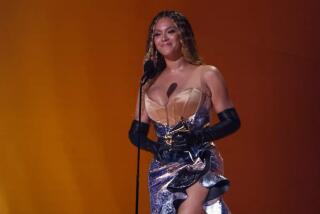Better Regulation--That’s the Ticket
- Share via
Why should fans have to pay up to 20 times the face value of a ticket to get a front-row seat at a big concert or sporting event? Professional ticket brokers say it’s because the customer is getting the benefit of a costly service. Maybe so, but lots of folks suspect it’s because greedy brokers gouge their customers.
Over the last decade the Legislature has made fitful efforts to regulate ticket brokers, but has never gotten much beyond minimal licensing and refund requirements. Some of the more responsible ticket brokers have taken voluntary steps to organize and police themselves, but there are still periodic public outcries over $30 concert tickets selling for $600.
Part of the problem is that there is a real philosophical question about how far the state can, or should, go to control ticket scalping. It has long been accepted that the state can regulate the cost of necessities, like utility services, to keep them accessible even to the poor. But concert or sports tickets are not in the same category. Does the state have any business regulating the cost of luxury items sold on a free market?
In this case, the answer is a qualified yes--because the market for entertainment tickets is not truly free. Everyone does not have the same free and fair access to the product. In at least some cases, prime tickets are never sold to average fans because brokers snap them up first, and not always ethically.
There are about 100 ticket brokers operating in California. The latest legislative effort to regulate them is SB 712 by state Sen. Bill Lockyer (D-Hayward). It prohibits brokers from reselling any entertainment ticket without the permission of the event’s promoter.
Small ticket brokers claim SB 712 is a thinly disguised effort to drive them out of business. They claim that most promoters don’t want to deal with them, but want to monopolize all ticket sales--and profits--for themselves and big, computerized ticket agencies like Ticketron.
It seems to us that reasonable regulations would allow room for small, independent brokers, while reining in their greedy colleagues who use trickery--or worse--to snatch up prime seats and then jack up the prices. The Senate Judiciary Committee is scheduled to begin hearings on the bill later this month to get a better focus on this issue, and many sports and music fans will follow the progress of SB 712.
The state can, and should, find ways to make sure that a thrifty teen-ager has the same chance to buy a good concert seat as the high-roller. You can’t legislate equality, of course, but this is a question of fairness.
More to Read
Go beyond the scoreboard
Get the latest on L.A.'s teams in the daily Sports Report newsletter.
You may occasionally receive promotional content from the Los Angeles Times.










